13 Best Herbal Tinctures For Oily Hair
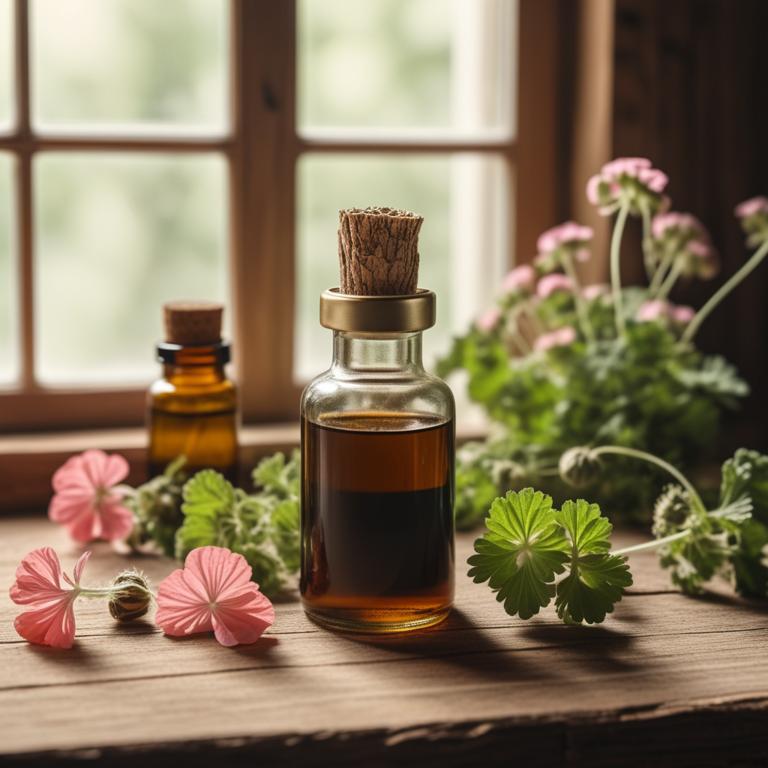
Herbal tinctures for oily hair are concentrated liquid extracts made from plants and herbs that are used to treat and manage excessive oil production on the scalp.
These herbal remedies have been used for centuries to balance the scalp's natural oil production, reduce dandruff and itchiness, and promote a healthier scalp.
Examples of herbal tinctures that are commonly used to treat oily hair include tea tree oil, which has antimicrobial properties that help combat scalp infections; sage tincture, which helps to reduce oil production and balance the scalp's natural pH; neem tincture, which has antifungal and antibacterial properties that help to control scalp infections; rosemary tincture, which improves circulation and helps to reduce oil production; and lavender tincture, which has a calming effect on the scalp and helps to reduce stress-related oil production.
By incorporating these herbal tinctures into their hair care routine, individuals can enjoy a range of benefits, including a reduction in oil production, improved scalp health, and a more balanced and manageable hairstyle.
N/A
Below there's a list of the 13 best herbal tinctures for oily hair.
- 1. Rosmarinus officinalis tinctures
- 2. Aloe barbadensis tinctures
- 3. Salvia officinalis tinctures
- 4. Zingiber officinale tinctures
- 5. Melaleuca alternifolia tinctures
- 6. Lavandula angustifolia tinctures
- 7. Cinnamomum verum tinctures
- 8. Eucalyptus globulus tinctures
- 9. Cymbopogon citratus tinctures
- 10. Geranium maculatum tinctures
- 11. Thymus vulgaris tinctures
- 12. Urtica dioica tinctures
- 13. Ocimum basilicum tinctures
Also you may be interested in...
TODAY'S FREE BOUNDLE
Herb Drying Checklist + Herbal Tea Shopping List + Medicinal Herbs Flashcards
Enter you best email address below to receive this bundle (3 product valued $19.95) for FREE + exclusive access to The Aphotecary Letter.
$19.95 -> $0.00
1. Rosmarinus officinalis tinctures
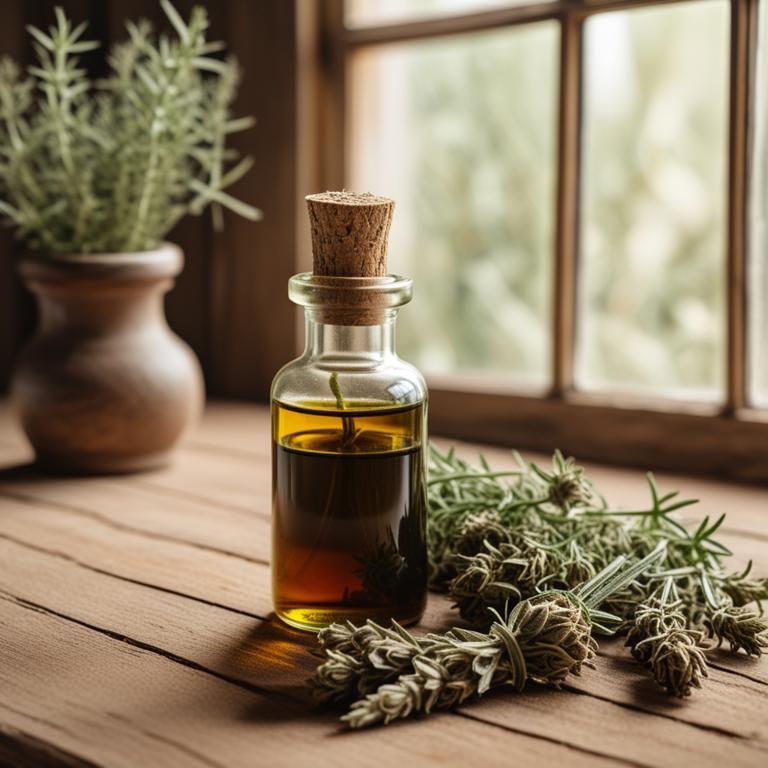
Rosmarinus officinalis tinctures are a natural remedy for treating oily hair ailments, utilizing their antiseptic and astringent properties to balance the scalp's pH and reduce oil production.
This herbal preparation helps to treat oily hair by inhibiting the growth of bacteria and fungi that contribute to oil buildup, promoting a healthy scalp environment.
The bioactive constituents of Rosmarinus officinalis tinctures, including camphor, bornyl acetate, and rosmarinic acid, work together to reduce inflammation and prevent excessive oil secretion.
Regular use of Rosmarinus officinalis tinctures can lead to a significant reduction in oily hair, promoting a cleaner, healthier scalp and manageable locks.
2. Aloe barbadensis tinctures
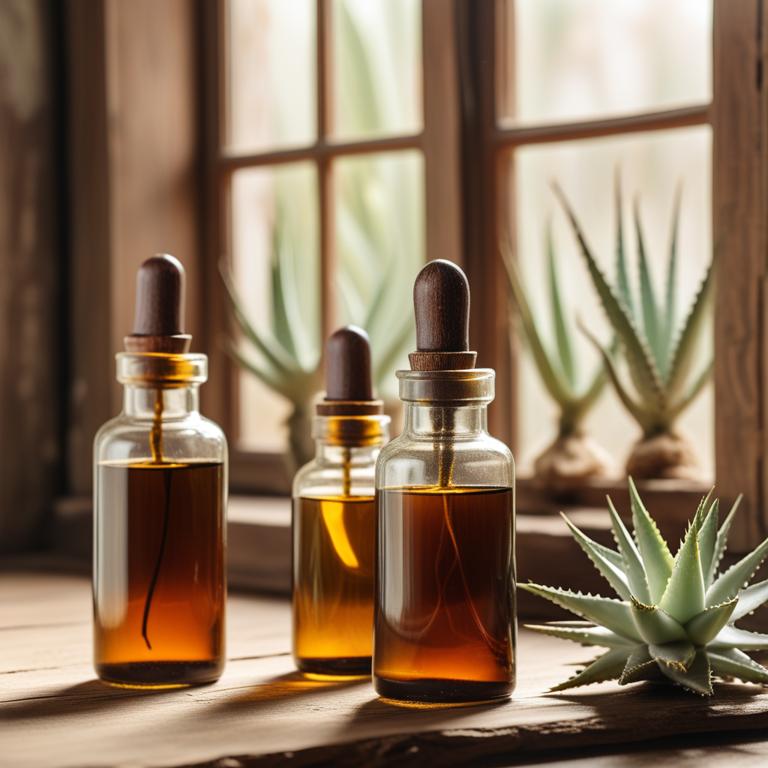
Aloe barbadensis tinctures are a popular herbal preparation used to treat oily hair ailments due to their astringent, antiseptic, and anti-inflammatory properties.
The bioactive constituents, including aloin and aloe-emodin, help to balance the scalp's pH, reduce oil production, and inhibit the growth of bacteria that can contribute to oily hair.
By applying Aloe barbadensis tinctures to the scalp, individuals can experience a reduction in oiliness and an improvement in overall hair health, leading to a more balanced and manageable hair texture.
Regular use of Aloe barbadensis tinctures can also help to soothe and calm the scalp, reducing irritation and flaking associated with oily hair.
3. Salvia officinalis tinctures
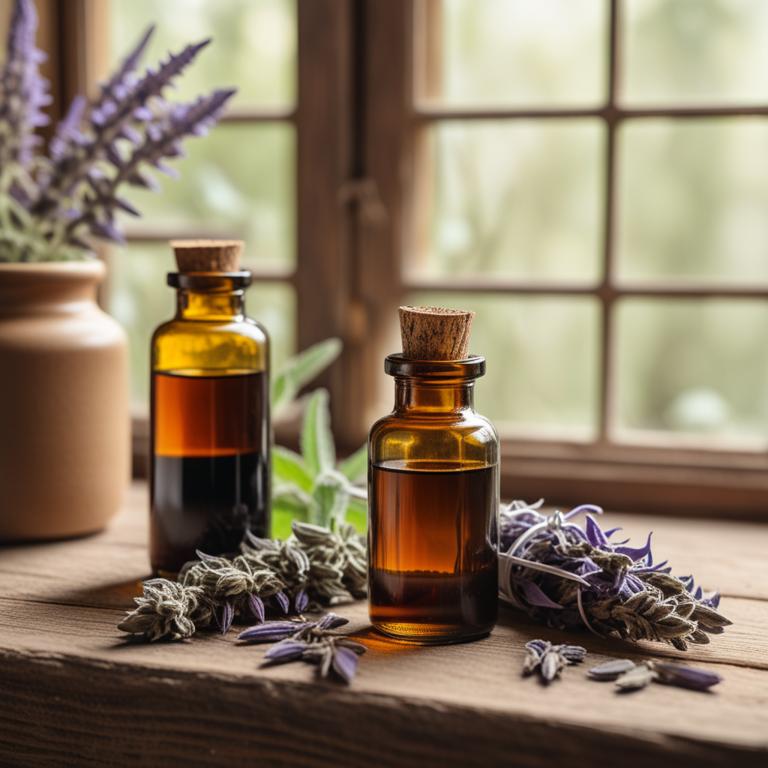
Salvia officinalis tinctures have been traditionally used to treat oily hair ailments due to their antiseptic and anti-inflammatory properties, which help to soothe and balance the scalp.
The bioactive constituents present in Salvia officinalis tinctures, including flavonoids and phenolic acids, help to reduce the production of sebum and prevent the growth of bacteria that can contribute to oily hair.
By regulating the scalp's natural oil production and preventing bacterial growth, Salvia officinalis tinctures can help to reduce the appearance of oily hair and promote a healthier scalp.
Regular use of Salvia officinalis tinctures can also provide additional benefits, such as reducing dandruff and promoting a balanced scalp pH.
4. Zingiber officinale tinctures

Zingiber officinale tinctures, derived from the rhizome of the ginger plant, have been traditionally used to treat oily hair ailments due to their antiseptic and anti-inflammatory properties.
The bioactive constituents present in ginger, such as gingerols and shogaols, help to regulate the production of sebum in the scalp, reducing oiliness and promoting a healthy hair growth.
These constituents also have antioxidant properties that help to protect the scalp from oxidative stress, further contributing to the reduction of oiliness and improvement of hair texture.
By using Zingiber officinale tinctures, individuals can experience the benefits of reduced oiliness, improved hair texture, and a balanced scalp, leading to a healthier and more manageable hair.
5. Melaleuca alternifolia tinctures
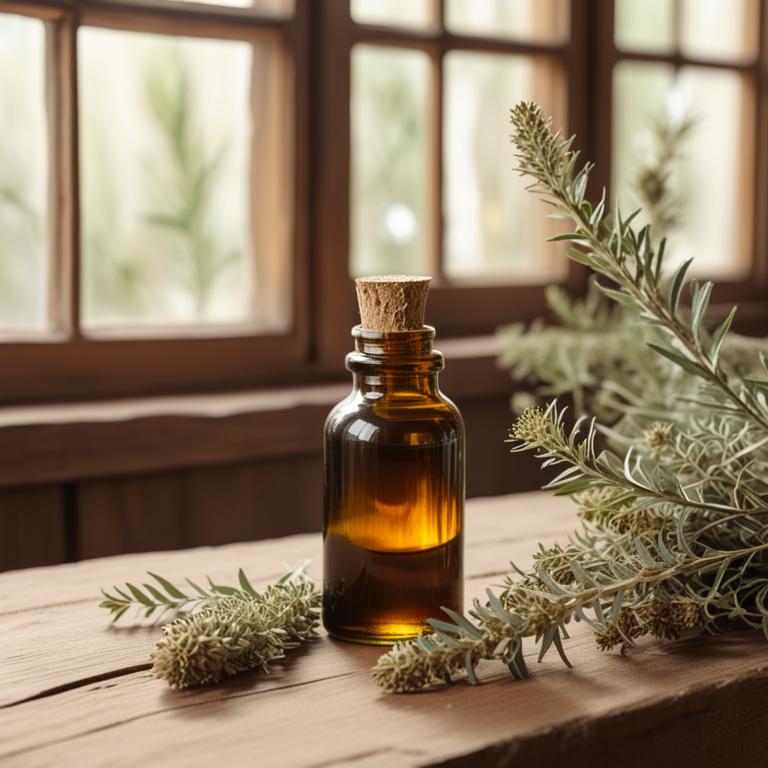
Melaleuca alternifolia tinctures have been traditionally used to treat oily hair ailments due to their antimicrobial and antifungal properties, which help to control the growth of bacteria and fungi that can contribute to scalp irritations and oily hair.
The tannins present in Melaleuca alternifolia tinctures help to reduce the sebum production, thereby balancing the oil levels on the scalp and hair.
The bioactive constituents, including cineole, limonene, and linalool, have anti-inflammatory properties that soothe the scalp and reduce redness, promoting a healthy hair growth environment.
Regular use of Melaleuca alternifolia tinctures can help to control oily hair, reduce scalp irritations, and promote a balanced scalp and hair health.
6. Lavandula angustifolia tinctures
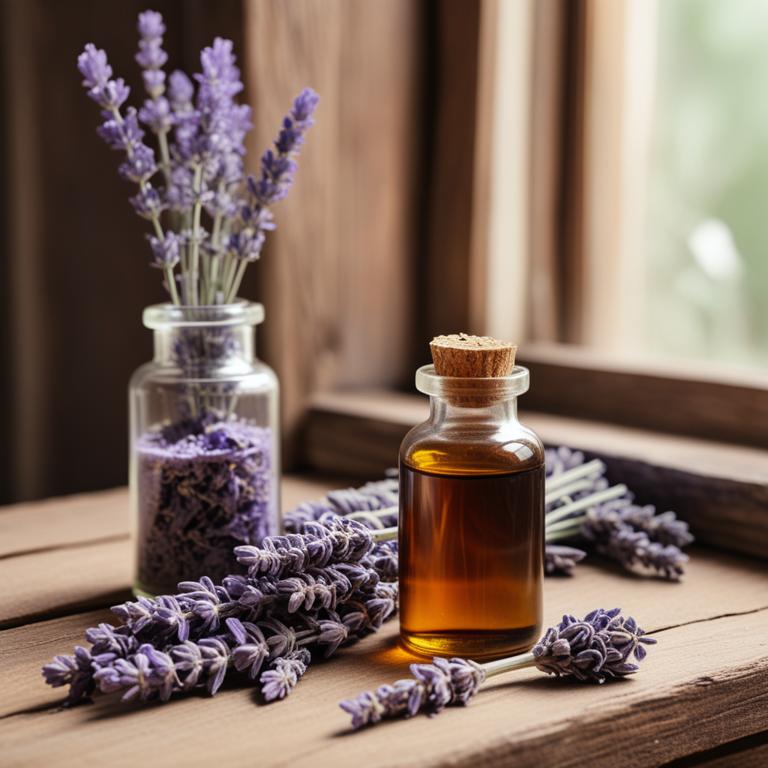
Lavandula angustifolia tinctures have been traditionally used to treat oily hair by reducing sebum production and promoting a balanced scalp environment.
The antiseptic and astringent properties of this herbal preparation help to combat bacterial and fungal imbalances that can contribute to oily hair.
The bioactive constituents, including linalool and linalyl acetate, have been shown to have antifungal and antibacterial properties that inhibit the growth of microorganisms that can exacerbate oily hair.
The benefits of using Lavandula angustifolia tinctures to treat oily hair include reduced oil production, improved scalp health, and a refreshed, balanced appearance.
7. Cinnamomum verum tinctures
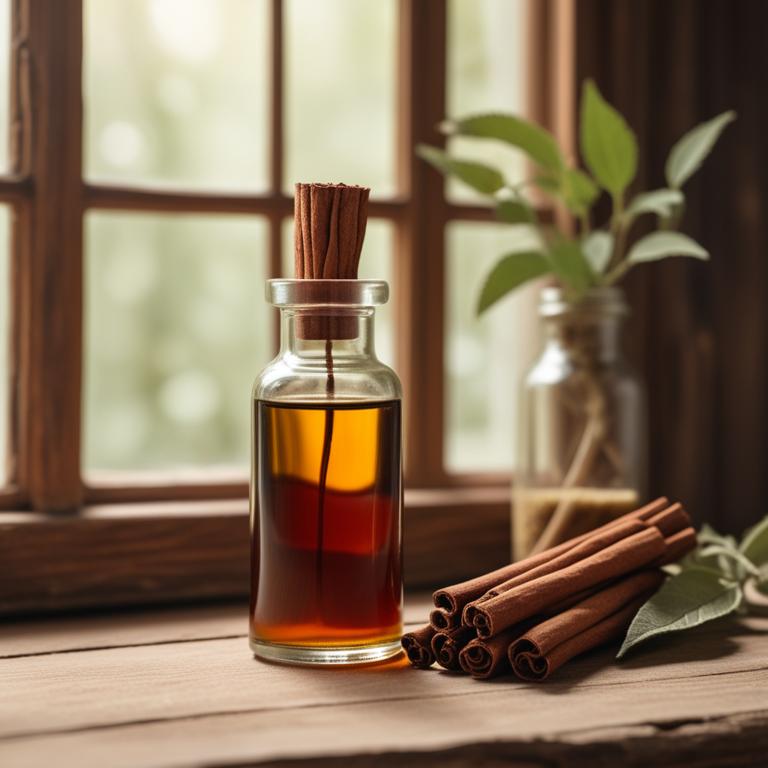
Cinnamomum verum tinctures have been traditionally used to treat oily hair by reducing its production and promoting a balanced scalp.
The properties of this herbal preparation that help to treat this ailment include its astringent and antiseptic qualities, which help to tighten the pores and prevent excess oil from being released.
The bioactive constituents of Cinnamomum verum tinctures, such as cinnamaldehyde and linalool, are responsible for its therapeutic effects, as they help to inhibit the growth of bacteria and fungi that can contribute to oily hair.
The benefits of using Cinnamomum verum tinctures to treat oily hair include a reduction in oil production, a decrease in dandruff and itchiness, and an improvement in overall scalp health.
8. Eucalyptus globulus tinctures
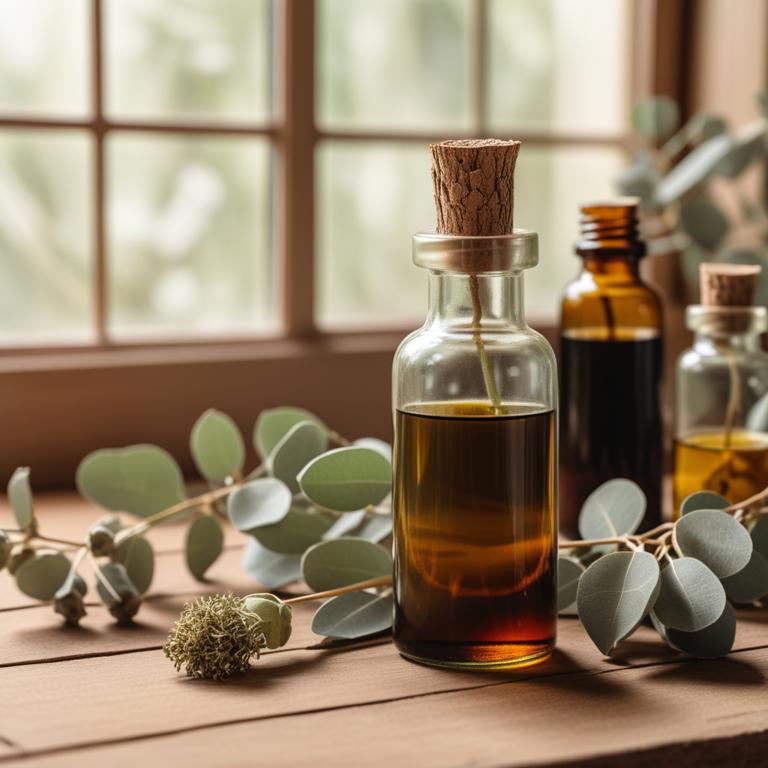
Eucalyptus globulus tinctures have been traditionally used to treat oily hair, a common issue affecting many individuals.
The antiseptic and astringent properties of this herbal preparation help to reduce the oil production in the scalp, thereby treating the oily hair ailment.
The bioactive constituents present in Eucalyptus globulus tinctures, including flavonoids, phenolic acids, and terpenoids, contribute to its therapeutic effects, which help to regulate the oil glands and reduce the oiliness of the hair.
The benefits of using Eucalyptus globulus tinctures to treat oily hair include a reduction in oil production, improved scalp health, and a more balanced hair texture.
9. Cymbopogon citratus tinctures
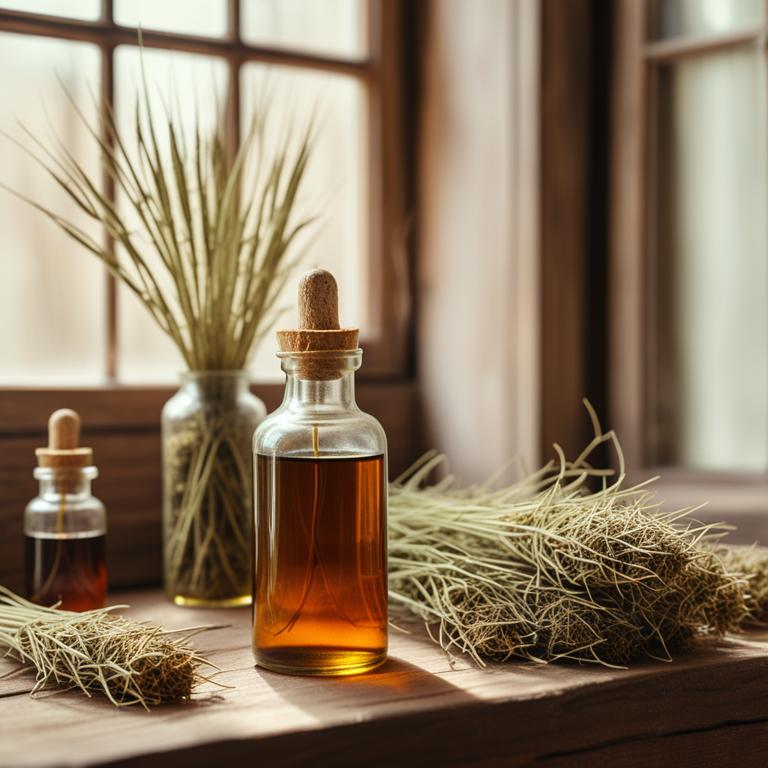
Cymbopogon citratus tinctures have been traditionally used to treat oily hair, a common scalp condition characterized by excessive oil production.
The tinctures' properties, including its antifungal and antibacterial properties, help to regulate the scalp's natural pH balance and reduce oil production, thereby alleviating the symptoms of oily hair.
The bioactive constituents, including citral, geraniol, and limonene, in Cymbopogon citratus tinctures help to reduce inflammation and combat the growth of microorganisms that contribute to oily hair.
The benefits of using Cymbopogon citratus tinctures to treat oily hair include a reduction in oil production, a decrease in scalp irritation, and a promotion of a healthy scalp environment.
10. Geranium maculatum tinctures

Geranium maculatum tinctures have been traditionally used to treat oily hair ailments due to their astringent and antiseptic properties, which help to balance the scalp's natural pH and reduce oil production.
The bioactive constituents, including rosmarinic acid and flavonoids, in Geranium maculatum tinctures help to reduce inflammation and prevent the growth of bacteria that contribute to oily hair.
By regulating the scalp's oil production and reducing bacterial growth, Geranium maculatum tinctures can help to alleviate oily hair and promote a healthier scalp.
Regular use of Geranium maculatum tinctures can also lead to improved scalp circulation, reduced dandruff, and a more balanced scalp ecosystem.
11. Thymus vulgaris tinctures
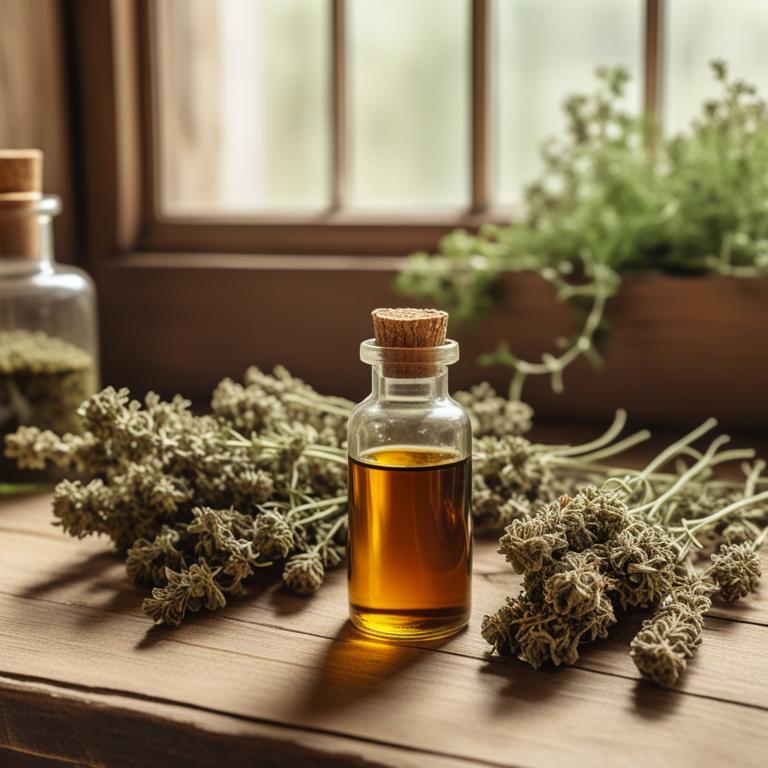
Thymus vulgaris tinctures have been used to treat the oily hair ailment due to their antiseptic, antifungal, and astringent properties, which help to balance the scalp's natural pH and reduce excessive oil production.
The bioactive constituents of Thymus vulgaris tinctures, including thymol and carvacrol, have antimicrobial properties that help to combat scalp infections and inflammation, thereby reducing oiliness.
By using Thymus vulgaris tinctures, individuals can experience benefits such as reduced oil production, improved scalp health, and a decrease in dandruff and itchiness.
The astringent properties of Thymus vulgaris tinctures also help to tighten the pores and reduce oil secretion, resulting in a more balanced and healthy scalp.
12. Urtica dioica tinctures
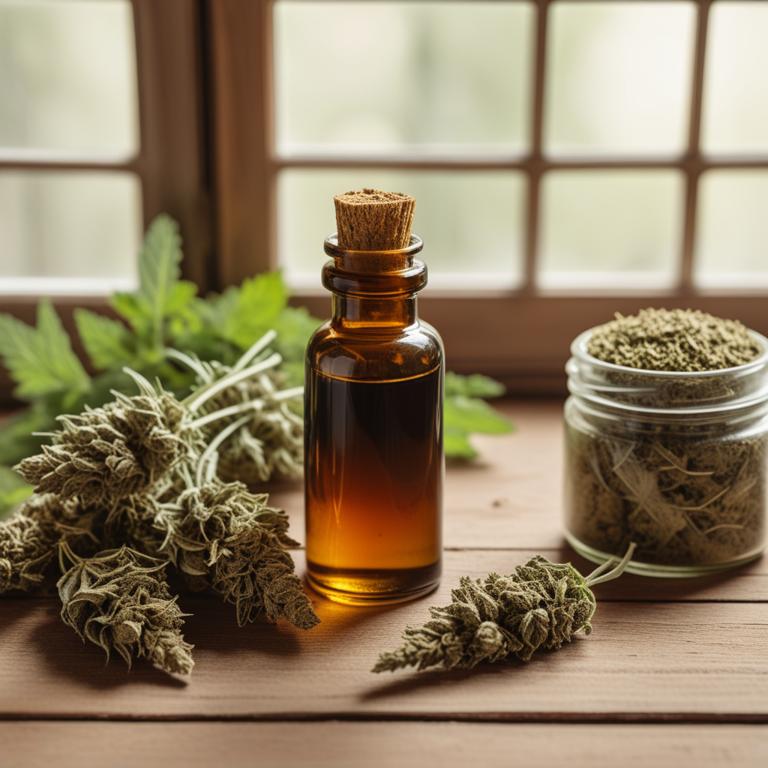
Urtica dioica tinctures have been used to help treat oily hair by reducing sebum production and balancing the scalp's natural pH levels.
The antiseptic and astringent properties of this herbal preparation help to reduce inflammation and prevent bacterial growth, which can contribute to oily hair.
Urtica dioica tinctures contain bioactive constituents such as flavonoids and alkaloids, which have been shown to possess antioxidant and anti-inflammatory properties that can help to regulate oil production and promote a healthy scalp.
The benefits of using Urtica dioica tinctures to treat oily hair include reduced oiliness, improved scalp health, and a balanced and healthy-looking hair.
13. Ocimum basilicum tinctures
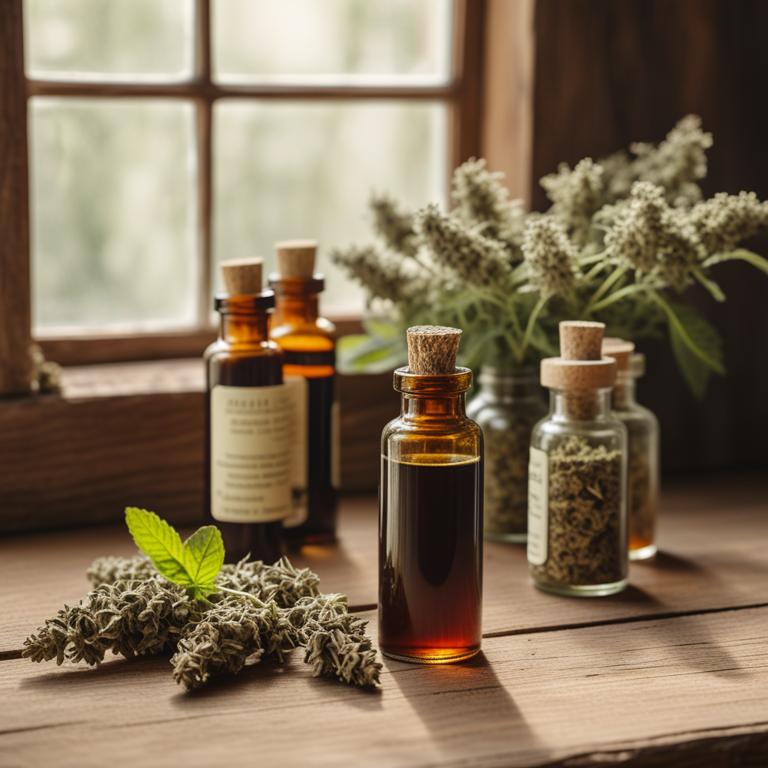
Ocimum basilicum tinctures have been traditionally used to treat oily hair due to their astringent and antiseptic properties.
These properties help to reduce the production of sebum, thereby controlling oiliness and promoting a healthy scalp.
The bioactive constituents, including linalool and eugenol, in Ocimum basilicum tinctures help to balance the pH of the scalp, regulate oil production, and reduce inflammation.
Regular use of Ocimum basilicum tinctures can help to treat oily hair by reducing oiliness, preventing dandruff, and promoting a healthy and balanced scalp.
Related Study
According to "Journal of ethnopharmacology", Ocimum basilicum tinctures for oily hair may be beneficial due to the antimicrobial activity of Ocimum essential oils against Malassezia species, which are known to contribute to various skin disorders including dandruff and seborrheic dermatitis.